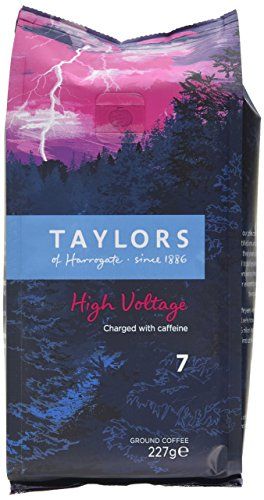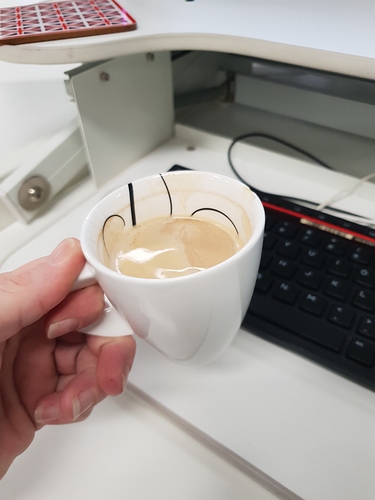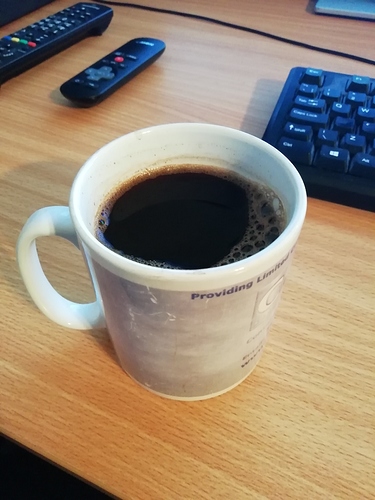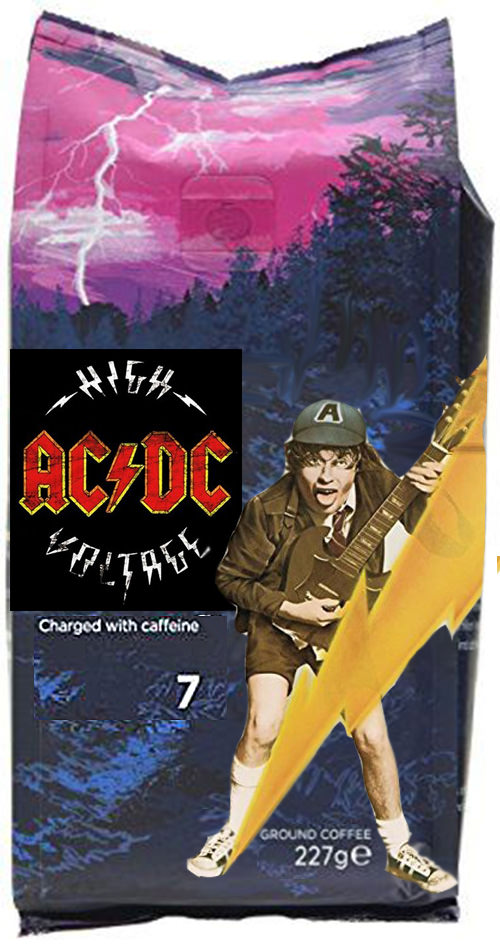I think that’s how insidious caffeine is. I didn’t think I was addicted either but I did get the withdrawal symptoms.
Caffeine Cold Turkey / Tapering off
I know I was addicted as everytime I didn’t have it I got a headache and that’s what I wanted to get away from by getting off it. I wanted to be able to skip the coffee if I didn’t want it or didn’t have time, without the fear of withdrawal symptoms.
I haven’t noticed any changes from making the switch but I can go without coffee now when I want to so objective achieved.
I was stressed and having lots of digestion issues like bloating when on coffee and to lesser degree while on tea
After quitting I felt very relaxed much less anxiety and deeper sleep.
Coffee is playing a trick on my mind by making me feel energetic and focused for an hour or so after drinking it so we tend to associate our views to coffee with such immediate feeling not the full day.
I would take the fact that you getting a headache when quitting cold turkey means your body was most likely addicted to it, even if you feel you weren’t. At least is how I look at it IMO.
Just the thought of no caffeine or coffee
I’m now getting a migraine reading this thread 
Time to just move on and pass on through
Bye bye thread 
This will put hairs on my chest! Grade 6 Java french press loveliness!
935am and this is my third since 6 
this stuff here is really rocking my world… if you have access to a retailer that sells `Taylors of Harrogate’ coffee (UK brand) try and get this… it’s a Grade 7 !!!
Whilst it ironically doesnt taste strong or bitter, the hit off it is immense!

I have in the past quit caffeine in various ways - taper, cold turkey, combinations of the two. Depends on how long I want to deal with it and whether I have a couple of days to ride out the headaches.
In general, I prefer having my morning caffeinated coffee so I am a moderate caffeine user by choice currently. Since I quit all diet sodas when I started this healthier way of eating, I am sure I have cut back somewhat on my total caffeine consumption.
If I have coffee after noon, it is always decaf. That’s my concession to the “caffeine is bad for you” camp. I do occasionally have some hot green tea in the evening, so I am not perfect in my late-day caffeine avoidance.
I try to drink decaf mixed with Rasa Koffee all week until my “Friday.” Then I drink a straight-up fully caffinated americano with heavy cream and it makes the whole week worth it. 
Cold turkey almost 3 weeks ago. Feel fine. Think I sleep better. Seems to be easier to get up in the morning.
Here’s a little science information that you and @monsterjuice may appreciate.
I thought it had something to do with blood flow as opposed to addiction!.. so here you have it!
I appreciate all perspectives!
I feel it’s not an addiction because i WANT to enjoy it, i don’t crave it, or HAVE to have it you know?
Your source for the latest research news
Science News
from research organizations
Caffeine Withdrawal Headache Explained: Your Brain On – And Off – Caffeine
May 4, 2009
Source:
University of Vermont
Summary:
Using EEG, ultrasound to examine blood flow velocity and questionnaires, researchers found physiological evidence of the likely mechanism underlying the common “caffeine withdrawal headache,” as well as a surprise finding.
FULL STORY
Ever miss your daily cup of coffee and subsequently get a pounding headache? According to reports from consumers of coffee and other caffeinated products, caffeine withdrawal is often characterized by a headache, fatigue, feeling less alert, less energetic and experiencing difficulty concentrating.
Researchers from the University of Vermont College of Medicine and Johns Hopkins School of Medicine sought to investigate the biological mechanisms of caffeine withdrawal in a paper published recently in the online edition of the scientific journal Psychopharmacology. They looked at brain electrical activity and blood flow during caffeine withdrawal to examine what was taking place physiologically during acute caffeine abstinence, including the likely mechanism underlying the common “caffeine withdrawal headache.”
The group examined caffeine’s effects in a double-blind study, which involved the administration of caffeine and placebo capsules. Each participant’s response to the caffeine or placebo was measured using three different measures — brain electrical activity via electroencephalogram (EEG); blood flow velocity in the brain via ultrasound; and participants’ self-reports of subjective effects via questionnaires.
The team demonstrated that stopping daily caffeine consumption produces changes in cerebral blood flow velocity and quantitative EEG that are likely related to the classic caffeine withdrawal symptoms of headache, drowsiness and decreased alertness. More specifically, acute caffeine abstinence increased brain blood flow, an effect that may account for commonly reported withdrawal headaches. Acute caffeine abstinence also produced changes in EEG (increased theta rhythm) that has previously been linked to the common withdrawal symptom of fatigue. Consistent with this, volunteers reported increases in measures of “tired,” “fatigue,” “sluggish” and “weary.” Overall, these findings provide the most rigorous demonstration to date of physiological effects of caffeine withdrawal.
The researchers also discovered a provocative and somewhat unexpected finding — that there were no net benefits associated with chronic caffeine administration.
“In addition to looking at caffeine withdrawal, this rigorous design also permitted comparison of chronic caffeine maintenance with chronic placebo maintenance, which provides unique information about the extent to which there are net beneficial effects of daily caffeine administration,” said Stacey Sigmon, Ph.D., research associate professor of psychiatry at the University of Vermont and first author on the study. “In contrast to what most of us coffee lovers would think, our study showed no difference between when the participant was maintained on chronic placebo and when the participant was stabilized on chronic caffeine administration. What this means is that consuming caffeine regularly does not appear to produce any net beneficial effects, based on the measures we examined.”
Co-authors on the study, which was a collaboration between Sigmon and Roland Griffiths, Ph.D., at the Johns Hopkins University School of Medicine, include Griffiths, as well as Ronald Herning, Warren Better and Jean Cadet of the National Institute on Drug Abuse’s Molecular Neuropsychiatry section.




